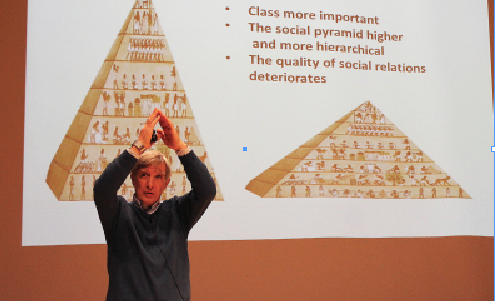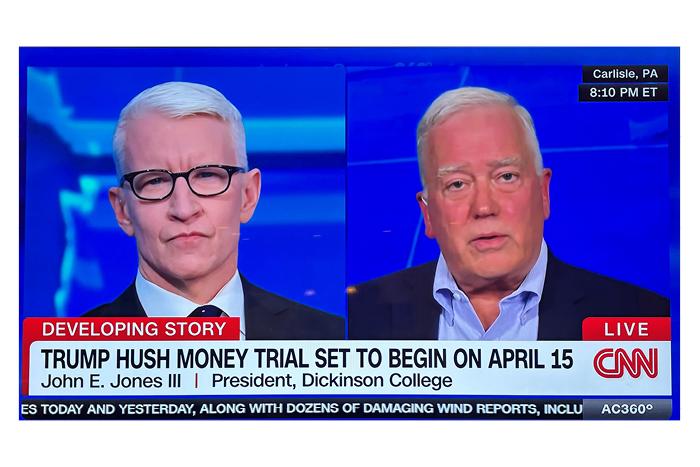
A laugh echoed throughout Rubendall Recital Hall as a capuchin monkey recognized the unfairness of receiving a piece of cucumber in exchange for a rock, instead of a grape like the other monkey.
Richard Wilkinson, professor at University of Nottingham Medical School, began his talk, “Inequality: The Enemy Between Us?,” on Thursday, March 28, with this monkey clip. He stated that the fundamental problem of inequality relates to Thomas Hobbes’ idea that all people have the same needs and there is competition for the basic necessities.
Wilkinson also shared the quote, “Gifts make friends and friends make gifts.” There are two options when dealing with the competition between humans: social status and friendship. According to Wilkinson, social status is based on power, coercion and access to resources, not others’ needs. In contrast, friendship is based on reciprocity, mutuality, sharing and recognition of others’ needs.
Wilkinson’s talk, sponsored by The Clarke Forum and the Student Senate Public Affairs Committee and co-sponsored by Health Studies, the Department of Sociology, the Community Studies Center and the Department of American Studies, focused on the theory of problems with social gradients. Wilkinson believes there is a common misconception that the vulnerable end up on the bottom, but in reality, the problems are larger in societies with bigger social gaps and are a response to social status difference itself.
“The main sources of stress in our lives [are]…feeling not valued and insecure. Friendship fits in with that because you feel valued,” said Wilkinson. “All these social evaluation anxieties are increased by social inequality.”
Wilkinson showed graphs to prove that countries with bigger inequality gaps have more health and social problems, less trust, worse child well-being, higher infant mortality rates, higher homicide rates, higher imprisonment rates, higher teenage birth rates and lower social mobility.
“We think of the social hierarchy as innate ability but most of the differences…are not causes of the social hierarchy, but results,” Wilkinson explained.
Students in attendance found the speaker interesting.
“I found the talk to be extremely fascinating and the topic to be intellectually stimulating,” said Ramona Weber ’15. “The speaker helped me become more aware of the extent to which inequality affects our society.”
Erin Fenerty ’16 also enjoyed the talk.
“I thought it was interesting and helpful to understand the underlying problems in our country,” reported Fenerty.
Rachel Levine ’15 agreed with Weber and Fenerty.
“It was very interesting to learn how health and social problems are much worse in unequal countries, which have larger income inequalities than more equal countries, which have smaller inequalities,” she said.
Wilkinson explains more of his beliefs in his book “The Spirit Level.” For more information, visit his website at www.equalitytrust.org.uk.



